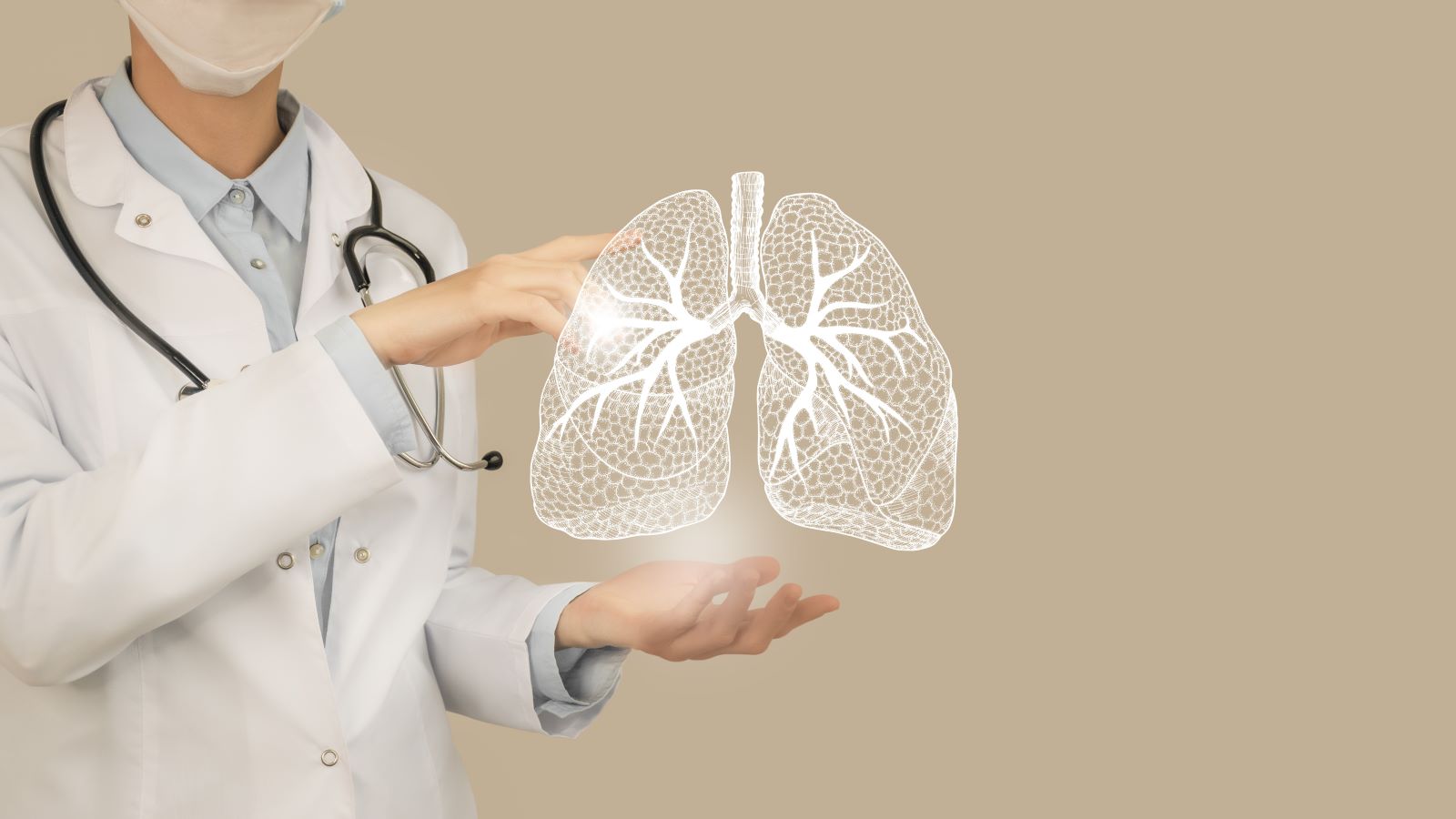When you hear “lung cancer,” smoking is probably the first thing that comes to mind. And while it’s true that smoking is the leading cause of the disease, it’s not the only one.
We asked Brian Whang, MD, the medical director of the lung screening program at Hartford HealthCare to dive into other common causes of lung cancer and share tips on how to lower your risk.
1. Radon
One of the leading causes of lung cancer could be in your house right now.
“Radon is a colorless, odorless radioactive gas,” explains Dr. Whang. “It forms from the natural breakdown of uranium, thorium and radium in soil and groundwater. Radon can seep into homes through foundation cracks and become trapped inside.”
Fortunately, testing for radon is simple.
“You can manage this major risk factor,” says Dr. Whang. “Test your home for radon and take steps to reduce it if it’s needed to ensure a healthier living environment.”
> Related: Why More Young Women Are Getting Lung Cancer
2. Secondhand smoke
Even if you don’t smoke, you’re still at risk of lung cancer from secondhand smoke.
“It increases the risk of lung cancer by 20 to 30%,” explains Dr. Whang. “It also raises the risk of heart and vascular disease, reproductive issues, respiratory problems and sudden infant death syndrome (SIDS).”
The best way to limit your risk is to avoid putting yourself indoors where smoke can gather.
“It’s crucial to limit smoking to outdoor areas,” emphasizes Dr. Whang.
> Want more health news? Text StartHere to 85209 to sign up for text alerts
3. Chemical exposure
Exposure to asbestos, diesel exhaust, and inhaled chemicals such as nickel and arsenic increases the risk of lung cancer.
“With asbestos, the effect of smoking on lung cancer risk is synergistic,” explains Dr. Whang. “The combined risk of lung cancer from both asbestos and smoking is greater than the sum of their individual risks.”
Specific jobs and industries carry an even higher risk of lung cancer, including:
- Shipyards
- Railways
- Stone quarries
- Sandblasting
- Garages
- Dry cleaning plants
- Glass manufacturing
- Pipe fitting and insulation
- Welding
- Oil refineries
“Wearing appropriate protective gear, especially masks, is crucial in high-risk occupations,” advises Dr. Whang. “It’s also important to remove this gear before heading home.”
4. Air pollution
Did you know that checking your weather app each morning can help protect your health? It’s true.
“It’s believed that air pollution causes 1 to 2% of all lung cancer deaths,” says Dr. Whang. “Stay aware of your environment and understand how changes in air quality can impact your health.”
Here are some tips to lower your risk:
- Wear a mask: When pollution is high, consider using a snug-fitting face mask outdoors .
- Exercise smart: Avoid outdoor exercise during high pollution.
- Air purifier: Use an air purifier at home, especially in frequently used rooms like the bedroom.
5. Health history
A personal or family history of lung cancer can increase your risk.
“Although specific inherited gene mutations have not yet been pinpointed, individuals with immediate family members (e.g., parents, siblings) who developed lung cancer, especially at a young age, are at higher risk,” explains Dr. Whang.
Talk to your doctor about the recommended next steps.
6. To be determined?
There’s one item that’s not on this list – yet.
“We don’t yet know enough about the effect of smoking marijuana or vaping on the risk of lung cancer,” cautions Dr. Whang. “However, given the known carcinogens in both, it’s only a matter of time.”
When to see a doctor.
If you have concerns about your lung cancer risk, talk to your doctor.
The progression of lung cancer is similar in smokers and non-smokers, and there are common symptoms to watch out for:
- Persistent cough
- Coughing up blood
- Unexplained weight loss or loss of appetite
- Difficulty breathing
- Recurrent lung infections
- Chest pain
- Fatigue
“If you’re at higher risk for lung cancer or have symptoms, consult your doctor,” says Dr. Whang. “They can provide a thorough evaluation and discuss options for lung cancer screening or follow-up care to give you the answers you need.”



